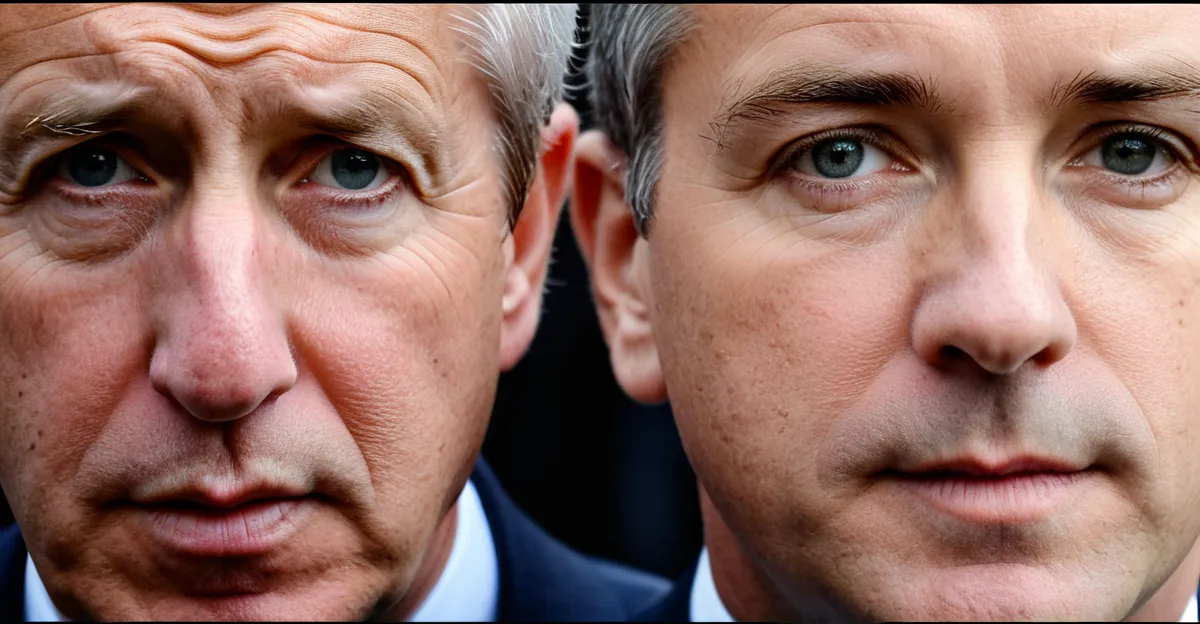Overview of Recent Political Developments in the UK
Recent political developments in the UK have been both dynamic and transformative, marked by several major events reshaping the landscape. One significant political change was the resolution of the ongoing Brexit negotiations, which had profound effects on both domestic and international fronts. The conclusion of these talks has set new precedents in UK politics, emphasising sovereignty and reshaping the nation’s trade relationships.
Key figures in these recent political changes include Prime Minister Rishi Sunak and opposition leader Keir Starmer. Both have played pivotal roles, influencing the direction of UK politics. Sunak’s leadership, particularly, has been tested by economic challenges, including inflation and market instability, requiring adept political strategies.
Also to discover : How are UK cities adapting to smart city initiatives?
Public sentiment, meanwhile, has shifted dramatically. Surveys reveal a populace divided on several issues, notably UK’s international alliances and domestic policies. As these political changes unfold, the public’s reaction continues to vary, reflecting a complex tapestry of opinions. This division underscores the need for robust political leadership to navigate the UK through its evolving political landscape.
Economic Implications of Recent Political Changes
The economic impact of recent political developments in the UK has been significant, affecting various facets of the nation’s economy. Amidst these changes, economic policies introduced under Prime Minister Rishi Sunak’s leadership focus heavily on stabilising an economy grappling with inflation and market fluctuations.
Also to read : Is Brexit’s Impact on the UK Economy Debatable?
Analysis of Economic Policies Introduced
A critical examination of the newly proposed economic strategies reveals an attempt to balance fiscal austerity with growth. These policies include adjustments in taxation and strategic investments in sectors like technology and infrastructure. By doing so, the government aims to cushion the UK economy against external shocks while promoting long-term economic resilience.
Projected Effects on UK Businesses and Trade
These political changes have also prompted notable market reactions, with UK businesses navigating a challenging landscape. The emphasis on redefining trade agreements post-Brexit has significant implications for import-export dynamics. Businesses must now adapt to these evolving conditions to maintain competitiveness. The government’s focus on trade diversification seeks to open new markets and strengthen existing international partnerships.
Global Market Reactions to Political Stability
Internationally, these political shifts have sparked varied reactions, with global markets closely monitoring the UK’s commitment to political stability. While some stakeholders remain cautiously optimistic, others express concern about potential market instability. The UK’s ability to manage these perceptions will be vital in maintaining investor confidence and bolstering its economic standing on the global stage.
Social Implications and Public Sentiment
Recent political developments in the UK have led to significant social impacts, evident in the shifting dynamics of public opinion and community responses. Public opinion polls and surveys indicate a fluctuation in sentiment, particularly concerning new political policies and leadership directions. A divided populace is apparent, with contrasting views emerging on the government’s handling of key issues like economic recovery and international relations.
The societal divisions caused by political events have brought to light questions on national identity and unity. The Brexit aftermath and the ensuing policy changes have intensified debates over the UK’s role on the global stage, highlighting differences in regional and demographic perspectives. This fragmentation poses challenges to social cohesion, as communities grapple with aligning their local priorities with national objectives.
Moreover, these political transformations have taken a toll on community dynamics. Individuals and groups often find themselves at loggerheads over issues that have divided the country. The broader public discourse reflects concerns over inclusivity and representation, stressing the need for political leadership that is responsive to the diverse needs of all citizens. As these discussions unfold, they underscore an urgent call for fostering dialogue and understanding to bridge the socio-political gaps that have emerged.
International Relations and Implications
The UK’s foreign policy strategy has undergone considerable transformation following recent political events, particularly Brexit. This shift has profoundly affected its relationships with both EU and non-EU countries. One key change has been the recalibration of trade agreements and diplomatic ties, aiming to establish new partnerships and revise existing arrangements. This strategic realignment has influenced the UK’s status on the global stage, necessitating more independent and sovereign policy-making.
Potential shifts in foreign policy strategies are evident as the UK seeks to diversify its international alliances and reduce reliance on European markets. A notable focus has been on enhancing connections with Commonwealth nations and exploring opportunities in the Asia-Pacific region. Such moves highlight the government’s intent to broaden its economic and political horizons, affecting its global standing.
International organizations and leaders have reacted with varying levels of optimism and concern. While some countries view these changes as an opportunity for strengthened bilateral relations, others remain cautious, scrutinizing the UK’s commitment to international cooperation. This reaction underscores the importance of diplomatic agility for the UK, as it seeks to maintain global influence while fostering new collaborations. The evolving dynamics within international relations call for strategic foresight in navigating the complexities of global politics.
Governance and Policy Changes
The recent political developments in the UK have ushered in significant governance changes that promise to reshape public policy and legislative priorities. A major focus has been on reforming governmental structures to better address contemporary challenges. Anticipated governmental reforms include initiatives aimed at decentralizing power, thereby enhancing regional autonomy and ensuring that local governance is more responsive to community needs.
Public policy modifications are expected to reflect a greater emphasis on sustainability and innovation, acknowledging the need for adaptive strategies in the face of global and domestic issues. Public services, particularly healthcare and education, are likely to see shifts in resource allocation to improve efficiency and access. These changes seek to address longstanding disparities while enhancing service delivery to meet the evolving needs of the populace.
On the legislative front, priorities are anticipated to pivot towards addressing climate change, digital transformation, and social inequality. These shifts will necessitate comprehensive legal frameworks that facilitate initiative implementations. Legislative impacts are poised to shape the future landscape of the UK’s socio-political environment, requiring robust debate and stakeholder engagement to ensure inclusive policy-making. Such initiatives underscore the UK’s commitment to proactive governance in a rapidly changing global context.
Expert Opinions and Predictions
The current political landscape in the UK has drawn considerable attention from experts across various fields. Their insights shed light on the likely trajectory of these recent changes.
Insight from Political Analysts
Political analysts are closely watching the unfolding political developments, noting that major events like Brexit have indelibly transformed UK Politics. They underscore that the realignment of party strategies, especially under leaders like Prime Minister Rishi Sunak, is pivotal. Analysts predict that ongoing political changes will continue to challenge the established political order, requiring strategic adaptations from both ruling and opposition parties.
Projections from Economists
Economists weigh in on the economic impact by highlighting how new policies aimed at stabilising the UK Economy are a response to market reactions. They foresee that the market’s adaptation to these reforms will dictate future economic growth. Economists project that continued focus on trade diversification will be crucial for safeguarding economic stability, despite ongoing economic challenges.
Perspectives of Social Reformers
Social reformers express concerns about the social impact of these political changes, noting that public opinion remains divided. Their analysis suggests that societal divisions may worsen if public policies don’t address the root causes of unrest. They propose inclusive strategies to mend community rifts, emphasizing the importance of fostering strong community dynamics to enhance overall social cohesion.
Conclusion on Long-Term Implications
The long-term implications of the recent political developments in the UK are critical in determining the nation’s trajectory. The ongoing shifts in political stability affect not only internal governance but also external relations. As outlined by various experts, the evolving landscape requires active adaptation.
Political stability is paramount, influencing economic policies and shaping future international relations. Analysts argue that solid leadership and strategic planning are essential in navigating the post-Brexit era. The potential scenarios involve either stabilizing trends, which fuel confidence, or escalating political tension, leading to uncertainty.
Economic forecasts suggest that the UK must prioritize trade diversification and innovation to remain competitive globally. This requires aligning economic policies with long-term growth visions. Embracing technological advances and fostering new partnerships are critical strategies moving forward.
Lastly, to secure a stable future, continuous monitoring and analysis of these changes are necessary. This proactive approach ensures informed decision-making, reinforcing the UK’s ability to respond adeptly to both opportunities and challenges. As the political landscape evolves, stakeholders must remain vigilant, fostering resilience and growth across all sectors.






